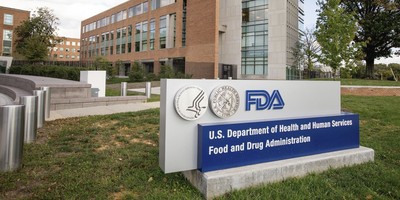Over dinner with an anesthesiologist friend, we discussed his new job -specifically his "on call" schedule. He explained that he needed to get one of his partners to take his next day on call, but that it shouldn't be a problem. In fact, he said that his partners vie for these call days. I was perplexed because this had not been my experience, so I asked him to elaborate. He said that the doctors in his group get paid according to how much they work, so they compete for extra call days.
In his former group, everyone was paid the same amount, regardless how much they worked. Hence, no one wanted extra call- it was a burden, and there was no incentive to work harder. By mid-afternoon, doctors attempted to remain inconspicuous so that they could slip out of the hospital unnoticed. In his new group, people volunteer to stay late and want to be sure that there are no patients still waiting for surgery before they call it a day.
There can be no better example illustrating the differences between a system which rewards hard work and personal responsibility versus one where all incentives are removed. Obamacare is emblematic of a system which destroys incentives to work and the reason why over 70% of physicians oppose it.
On our current path, hard work on the part of doctors is dis-incentivized. The $716 Billion being siphoned out of Medicare to pay for a new entitlement program, largely comes out of the pockets of physicians working to provide care to seniors. And then there is the Independent Payment Advisory Board (IPAB).
The IPAB is the most insidious of the 159 new agencies created under Obamacare. This board of 15 is unlikely to have any practicing physicians on it, but is charged with controlling Medicare spending by cutting payments to doctors if spending exceeds certain targets. Since they are not subject to Congressional oversight, it will be impossible to contest their decisions.
Recommended
Both McKinsey and the Congressional Budget Office reported that businesses faced with the choice of high healthcare costs or modest penalties for failing to provide health insurance to employees, would choose the latter. Millions of employees will be "dumped" into the government healthcare option; Medicaid for all- the failed government plan which provides “insurance” for indigent patients. Reimbursements are so low, that only 30% of doctors are currently seeing new Medicaid patients.
The government believes that doctors will either accept less money or work harder and see more patients, to preserve their income. Unfortunately, the reduction in payment for medical services is likely to have the opposite effect, as doctors scale down and cut back on their work effort. They simply will not work harder to earn less than an unskilled laborer. As they downsize their practices, millions of jobs in the medical sector will be lost, at a time when jobs are desperately needed.
Obamacare creates a template which will result in the elimination of the private practice of healthcare. This will occur through Accountable Care Organizations (ACOs) which are large hospital systems employing physicians, ostensibly to facilitate the integration of care and to control costs. Sadly, ACOs are akin to the HMOs of the 1990s, only much worse. The payment for an episode of care comes into the ACO as a single bundled payment and the institution determines how the money is divided. The patient no longer is the first priority of the doctors, but rather, it is satisfying the needs of their boss- the ACO. Doctors will be incentivized to save money- doing less, not more for their patients. Currently, less than 50% of doctors are self-employed and this number will drop sharply under Obamacare.
Another concession to the powerful hospital lobby was the elimination of physician owned hospitals, which compete against them. Soaring healthcare costs occurs not because there is too much competition in the healthcare marketplace, but not enough. Stifling government over-regulation on physicians has already limited their entrepreneurial abilities, but the added restrictions imposed because of Obamacare will eliminate most of the incentives to work hard.
Physician “burn-out” is a phenomenon that results from long hours, tremendous stress, and a demanding profession. Job satisfaction has eroded as a result of a myriad of tasks unrelated to patient care. Doctors are distracted by insurance company gamesmanship, government over-regulation, medical liability concerns, forced adoption of cumbersome electronic record systems, and hundreds of other issues which steal valuable time from patients. These aggravations have been accepted by doctors, as a trade-off for the ability to earn a decent living commensurate with the effort expended. Obamacare eliminates the few remaining incentives left for physicians. Patients will not be happy, wondering whether they will find a doctor to get the care that they need. What is bad for doctors will be infinitely worse for patients.
Hal Scherz is the President & Founder of Docs 4 Patient Care. He is a full time pediatric urologist at Children’s Hospital of Atlanta and a clinical associate professor of urology at Emory University. Please visit http://www.docs4patientcare.
























Join the conversation as a VIP Member